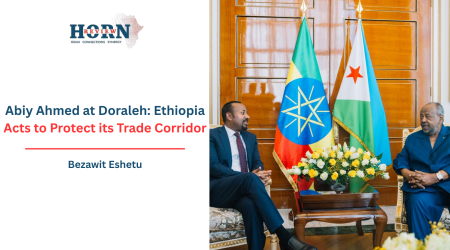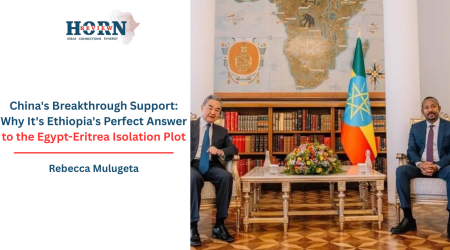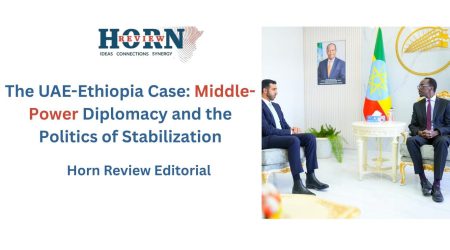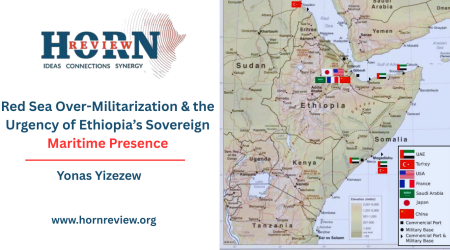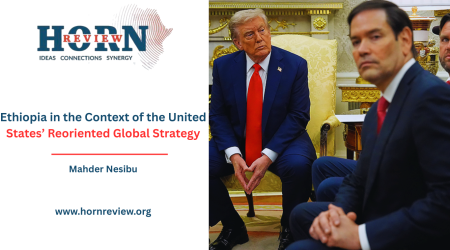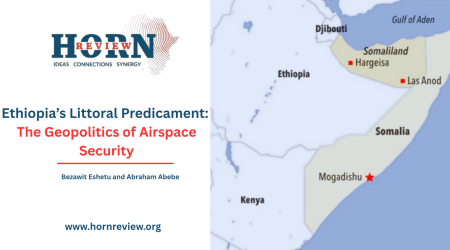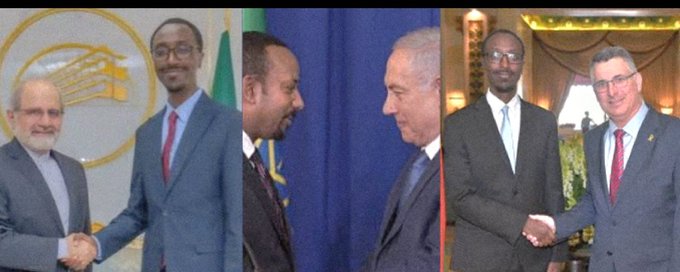
26
Jun
Ethiopia, the Red Sea, and the Expanding Iran–Israel War
Since 2023, Israel has mounted an expansive military campaign targeting Iran’s regional proxies – fighting Hamas in Gaza, striking Hezbollah positions in Lebanon, and engaging Houthi forces in Yemen. These operations have aimed to curtail Tehran’s strategic footprint across the Middle East. What began as a proxy struggle has since escalated into a direct confrontation. In early June, Israeli jets carried out deep strikes against Iranian territory, targeting key military sites and nuclear enrichment facilities. Iran responded swiftly, launching a barrage of missiles and drones against Israeli cities. The result: a dramatic transformation of the long-simmering conflict into a full-scale Israel-Iran war.
While degrading Iran’s nuclear capacity remains central, Israel’s actions suggest broader ambitions. Statements from Israeli leaders have alluded to a desire to weaken – if not outright dismantle – the Islamic Republic’s regime. The air campaign reportedly neutralized elements of Iran’s air defenses and eliminated high-ranking IRGC commanders, yet the country’s nuclear infrastructure remains only partially damaged. Tehran has categorically rejected the prospect of talks under fire and continues to cast any foreign intervention as an existential red line.
The United States has now entered the war. On June 21, President Trump authorized U.S. airstrikes on Iranian nuclear targets, framing the move as a major strategic success. The strikes, coordinated with Israeli operations, hit several sensitive installations. Israeli officials have lauded Washington’s involvement, calling it a decisive shift in the regional power balance.
Yet at home, Trump’s decision has triggered sharp political debate. While much of the Republican establishment has rallied behind the intervention, segments of his base remain wary – reminded of his earlier campaign pledges to avoid foreign entanglements. Bipartisan concerns in Congress have prompted new proposals to limit presidential war powers and restrict U.S. involvement. Despite Trump’s strategy of applying overwhelming force to coerce Tehran, the response from Iran has been one of defiance rather than capitulation. The Iranian leadership remains resolute, responding with further drone and missile attacks and rejecting any diplomatic overtures perceived as coercive.
The conflict has placed major global powers in an increasingly precarious position. Russia, which recently formalized a strategic partnership with Iran, now faces a delicate balancing act. Despite the alliance, Moscow values its longstanding security and economic ties with Israel. The Kremlin has offered to mediate, proposing a settlement that would allow Iran to retain a civilian nuclear program while addressing Israeli security concerns. However, Russia has refrained from military involvement and instead positioned itself as a neutral broker – eager to preserve influence across competing sides.
China faces a similarly complex calculus. Though Beijing has voiced political support for Iran’s sovereignty and strategic independence, it is deeply cautious about jeopardizing its vast energy and trade interests in the Middle East. Iran remains a crucial supplier of Chinese oil, and nearly half of China’s crude imports pass through the Strait of Hormuz. Any disruption in this corridor would be a major blow to China’s economy. Accordingly, Chinese officials have urged Tehran to show restraint, particularly in avoiding escalation that could endanger Red Sea shipping lanes. While Beijing’s rhetoric aligns with Iran, its actions remain measured and restrained, reflecting a priority on regional stability and economic continuity.
As the war extends into the Red Sea, the consequences for the Horn of Africa are growing more severe. Iran-backed Houthi forces, who had already stepped up attacks on Israeli-linked shipping, now pose a greater risk. Though initially focused on commercial vessels tied to Israel, the Houthis now appear poised to target military assets and infrastructure, raising the stakes for regional and global powers alike. With U.S. forces now directly engaged, the Red Sea corridor has become a volatile front. Should the Houthis expand operations across this strategic waterway, the resulting spillover could destabilize the entire region.
This escalation places Ethiopia in an increasingly precarious position. As a landlocked state that depends almost entirely on Djibouti for trade and fuel imports, Ethiopia’s economy is acutely exposed to disruptions in Red Sea transit. Djibouti, home to multiple foreign military bases and a vital chokepoint for global shipping, is now positioned on the fault line of a much broader conflict. The unfolding crisis underscores Ethiopia’s longstanding strategic imperative: securing sovereign access to the sea. Prime Minister Abiy Ahmed’s repeated assertions – that Ethiopia cannot afford to remain perpetually reliant on external port access – now carry heightened urgency.
Ethiopia must act decisively to safeguard its national interests. This entails intensified diplomatic engagement with Gulf states, Djibouti, and key naval powers such as the United States to ensure the security of Ethiopia-bound maritime trade. Addis Ababa should advocate for inclusion in regional security arrangements, such as international convoy protections, and seek participation in broader cooperative maritime frameworks. Even modest investments in maritime capabilities could improve deterrence and offer Ethiopia a seat at the table in Red Sea governance. Above all, securing a permanent foothold on the Red Sea coast must now be treated not merely as an aspiration, but as an existential necessity.
On the diplomatic front, Ethiopia should adhere to its traditional policy of non-alignment, preserving its carefully balanced relationships with both Israel and Iran. It must walk a fine line – offering quiet assurances to Tehran that it seeks stability and opposes regime change, while at the same time signaling to Israel and the U.S. that Ethiopian trade security aligns with their broader strategic goals in the Red Sea. Pragmatism, discretion, and strategic ambiguity will be essential to avoid alienating any major player while advancing Ethiopia’s core interests.
Finally, Ethiopia should leverage its wide-ranging relationships across the Gulf, Africa, and Eurasia to build a coalition of support for its maritime ambitions. Port access should be framed not as a power grab, but as a necessary step toward regional stability and economic self-reliance. The Red Sea must not become a battlefield that swallows Ethiopian interests in its wake. In moments of crisis, decisive action paired with strategic calculation can open unexpected opportunities. Ethiopia now faces such a moment – one that could shape its security, sovereignty, and regional standing for decades to come. Failure to act would risk leaving the country vulnerable to forces beyond its control.
By Mahider Nesibu,Researcher,Horn Review

